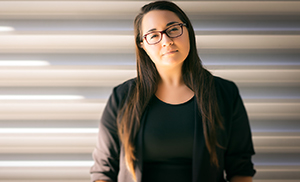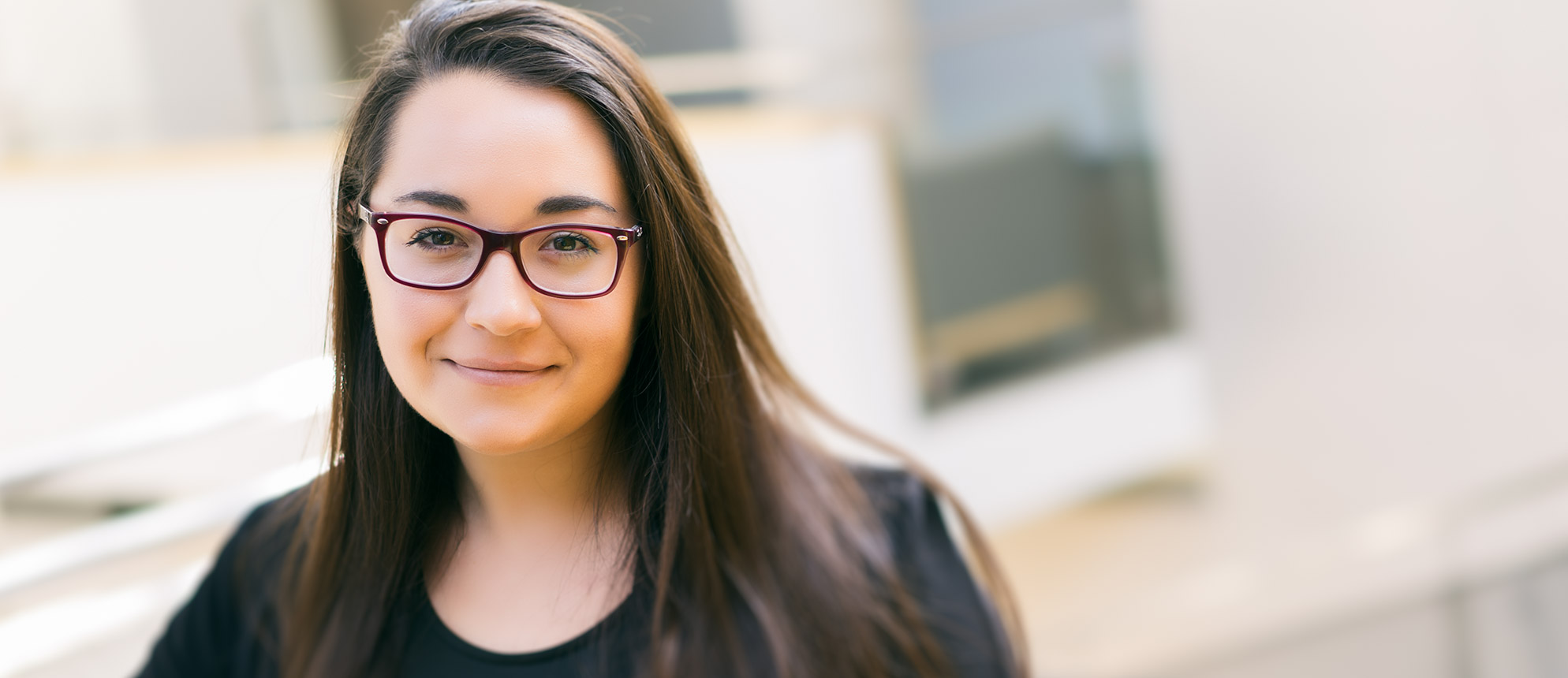

For many people, the internet is a routine part of everyday life. We click and post and bank and shop, forgetting it’s a privilege that isn’t afforded to everyone. Even though the internet is everywhere, in our homes and schools and workplaces and cars, much of it is still designed for a specific type of person with a particular range of abilities. For Daniela Napoli, a University of Guelph-Humber alumna from media studies, that’s not good enough — she wants to make the internet accessible for everyone.
When she was in her third year at UofGH, Daniela started as a work-study student for Web Services, helping with design optimization and website management. When she wasn’t researching new site features or assisting on a photo shoot, she took on a massive job. UofGH was working to make its website accessible and Daniela was helping make sure the many pages, subpages and attached documents were readable by assistive technologies like screen readers. Every course outline, schedule, request form and information document on the UofGH website had to be tagged for accessibility.
“Simply put, I want to help people be resilient.”
Those hours spent tagging and reformatting sparked an interest for Daniela, and when her classes started in the fall, she decided to explore internet accessibility.
“By law, the university has to make their web content accessible, but it’s a rule you always hear about as being technical and legal – you don’t hear about its human side,” she says. “In my class on multimedia journalism we had to learn how to take a standard text article and make it multi-faceted and interactive. For those 12 weeks we spent learning, we were tasked with finding a single long story and creating it. Because of my interest in digital accessibility, I wanted to explore the people behind it.”
It took time for Daniela to find someone who was willing to tell their story and build the trust required to interview them about their personal story with disability, but eventually, Allison, a man from New Brunswick, agreed to share. Daniela recorded his story, complete with interactive graphics, in an article called “Internet & Independence.” Diagnosed in childhood with Type-2 Diabetes, Allison was in his 30s when his vision began to blur and fade. Years later, with near-complete visual impairment, Allison uses assistive technology to scan his computer screen and navigate the internet. He can search for keywords or a URL, and the screen reader dictates the results.

“That was when it went well,” Daniela says. “Often, because many sites aren’t designed to be accessible, the software can’t recognize the information, so its readout is unorganized and confusing. Without that accessibility optimization, it’s just a jumble of words.”
When it didn’t work, it was frustrating and Allison was unable to do what he wanted. Seeing the frustration that came from failure and the pride and joy that came from success, Daniela realized it was something she wanted to pursue.
“Simply put, I want to help people be resilient,” she says.” I want to work so that people can do things they weren’t able to before. I think there’s a lot of satisfaction in that.”
To support that goal, Daniela started looking for graduate programs where she could learn more about technology and accessibility. After sending out her applications, she has decided to go to Carleton University, where she’ll start a master’s program in human-computer interaction this fall. There, she’ll learn about how matters of design can affect how software is used and research how to make technology more accessible.
“Through this work, I’m hoping to continue the conversation about adapting beautiful design so it can be used by everybody,” Daniela says. “It’s gratifying as a human being to know that what you’re doing can help and enable thousands of people in a way they couldn’t before.”
Learn more about Media Studies at UofGH.

